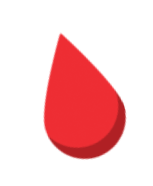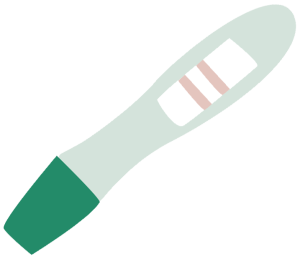Syphilis
Syphilis is a sexually transmitted infection (STI) caused by a bacteria. It is less common than other STIs but is on the rise. It develops in three stages but can be cured if treated early.
Signs and symptoms of Syphilis
The symptoms of syphilis are usually mild which may lead to some people ignoring them. The symptoms are similar whether you have a penis or vagina, and develop in three stages:
- The first stage: primary syphilis
- The second stage: secondary syphilis
- The third stage: tertiary syphilis
Primary Syphilis
- The first symptom may appear two to four weeks after being exposed to the bacteria (it may be sooner or later).
- This symptom is a small painless sore called a chancre (pronounced ‘shanker’ which means ‘creeping ulcer’).
- The chancre (it is usually just one) will normally appear on the area where the infection entered the body, so the vagina, penis or anus. Sometimes the chancre may appear on your lips, tonsils, hands or buttocks.
- The chancre is painless but highly infectious.The sore normally heals and disappears after two to six weeks.
Secondary Syphilis
This stage will begin a few weeks after the chancre has disappeared. Even without the chancre, syphilis is still infectious in stage two and can be passed on.
Symptoms may include:
- A non-itchy rash, often on the palms or soles of your feet
- Small flat growths (a bit like warts) around the vagina or anus
- Flu-like symptoms such as headaches, fever, joint pains and tiredness
- Swollen glands in your neck, armpits or groin
- Weight loss
- White patches on the tongue or roof of the mouth
- Patchy hair loss
These symptoms may disappear after a few weeks or can come and go over a period of weeks or months. When the symptoms have disappeared you move into the latent (hidden) phase. This stage can last for years.
Tertiary Syphilis
It is rare to reach this stage in the UK and of those that do; only a third will experience serious symptoms.
This stage will begin years or even decades after the first infection and the symptoms will depend on where the infection has spread to.
Tertiary stage syphilis can cause:
- skin rashes
- numbness
- paralysis
- loss of coordination
- blindness
- deafness
- stroke
- dementia
- heart disease
Testing and Treatment
Syphilis is tested for through a blood test. You may also be offered an examination to look for signs and symptoms. Swabs may also be taken if you have a chancre. Syphilis is usually treated with a single antibiotic injection or a course of injections. This treatment is very effective for both first and second stage syphilis and should cure it. Syphilis can also be treated and cured in the latent and third stages but treatment cannot reverse any damage that has already been done to your body.












